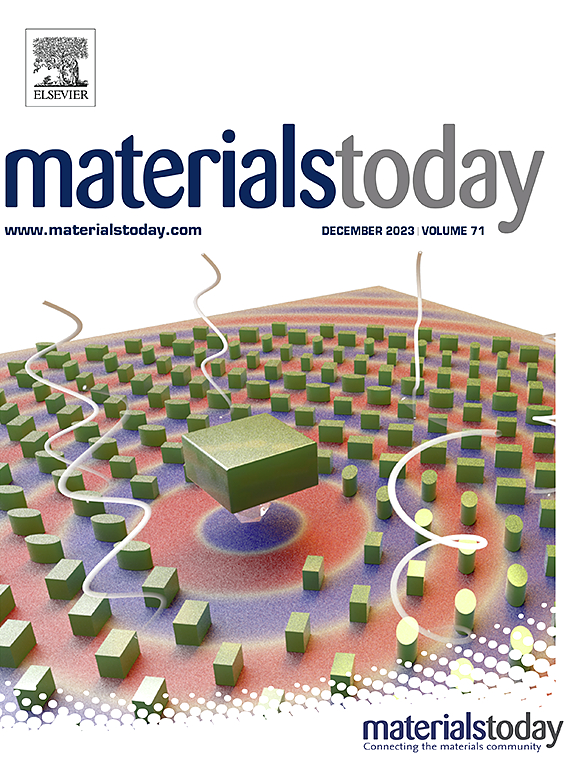Harvesting room-temperature plasticity in ceramics by mechanically seeded dislocations
IF 21.1
1区 材料科学
Q1 MATERIALS SCIENCE, MULTIDISCIPLINARY
引用次数: 0
Abstract
The quest for room-temperature ductile ceramics has been repeatedly fueled by hopes for large-scale applications but so far has been not successful. Recent demonstrations of enhanced functional properties in ceramics through judicious dislocation imprint, however, have been sparking renewed interest in dislocation plasticity in brittle ceramics. Here, we propose a facile approach using room-temperature mechanically seeded dislocations with a density of ∼ 1014/m2 to significantly improve the room-temperature plasticity of ceramics with a large plastic compressive strain beyond ∼ 30 %. The seeded mobile dislocations trigger profuse dislocation multiplication via cross slip and motion. Hence, they offer an avenue to suppress brittle fracture and harvest plasticity in ceramics without any additional high-temperature process. We employ both in situ nano-/micromechanical deformation and ex situ bulk deformation to bridge the length scales. This finding tackles the pressing bottleneck of dislocation engineering in ceramics for achieving ductile ceramics and harvesting versatile mechanical and functional properties.

通过机械播种位错获取陶瓷的室温塑性
对室温韧性陶瓷的探索一直被大规模应用的希望所推动,但到目前为止还没有成功。然而,最近通过明智的位错印记增强陶瓷功能特性的证明,已经引发了对脆性陶瓷中位错塑性的新兴趣。在这里,我们提出了一种简单的方法,使用密度为~ 1014/m2的室温机械播种位错来显著提高陶瓷的室温塑性,其塑性压缩应变超过~ 30%。种子移动位错通过交叉滑移和运动引发大量位错增殖。因此,它们提供了一种途径来抑制脆性断裂和收获陶瓷塑性,而无需任何额外的高温工艺。我们采用原位纳米/微机械变形和非原位体积变形来桥接长度尺度。这一发现解决了陶瓷中位错工程的紧迫瓶颈,以实现延展性陶瓷和收获多功能的机械和功能特性。
本文章由计算机程序翻译,如有差异,请以英文原文为准。
求助全文
约1分钟内获得全文
求助全文
来源期刊

Materials Today
工程技术-材料科学:综合
CiteScore
36.30
自引率
1.20%
发文量
237
审稿时长
23 days
期刊介绍:
Materials Today is the leading journal in the Materials Today family, focusing on the latest and most impactful work in the materials science community. With a reputation for excellence in news and reviews, the journal has now expanded its coverage to include original research and aims to be at the forefront of the field.
We welcome comprehensive articles, short communications, and review articles from established leaders in the rapidly evolving fields of materials science and related disciplines. We strive to provide authors with rigorous peer review, fast publication, and maximum exposure for their work. While we only accept the most significant manuscripts, our speedy evaluation process ensures that there are no unnecessary publication delays.
 求助内容:
求助内容: 应助结果提醒方式:
应助结果提醒方式:


